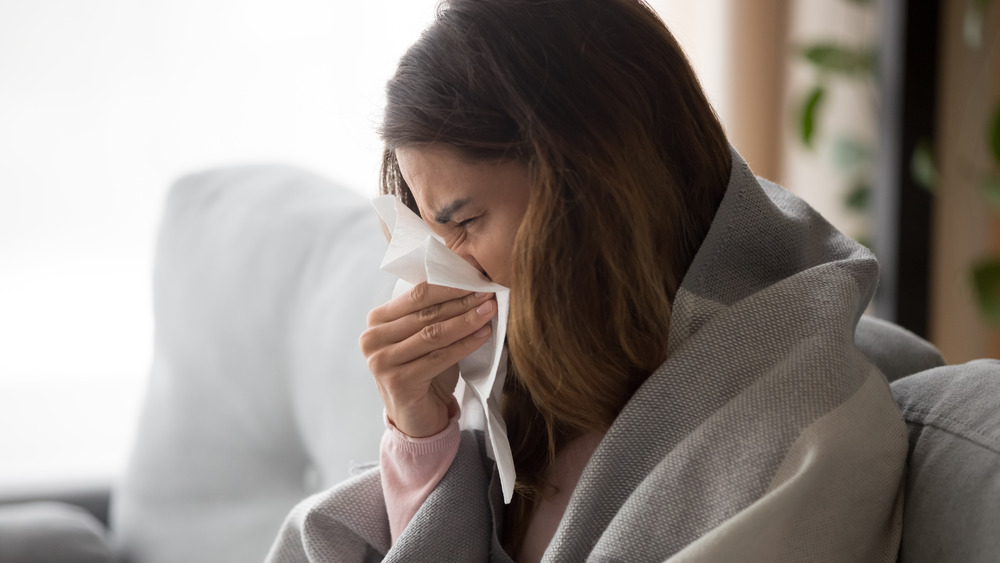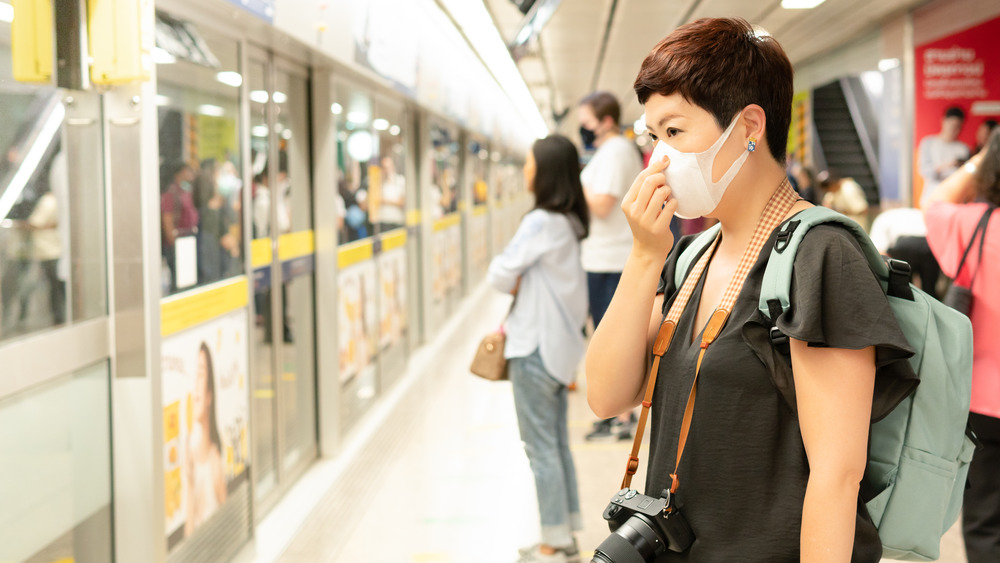Here's How Long Your Cold Is Really Contagious
Finally, your cold seems to have ended! The skin around your nose starts to heal from the aggressive tissue attacks, it no longer hurts to swallow, and you can actually taste your food again. It appears the time has come to re-enter society as the healthy human you are. But before you dive in, press pause on those plans to resume daily life and consider others around you.
Health shares that in the U.S., there are about 1 billion cases of the common cold each year. This is a good indication of why we casually refer to it as a 'common' cold. This high number of yearly cases is attributed to the fact that there are around 200 extremely contagious viruses that can cause cold symptoms like a runny nose, sore throat, and body aches. While you may have already been unlucky to have caught a cold this year, you can still do your part to make sure it doesn't spread — starting with knowing how long you are actually contagious.
You may still be contagious even after your symptoms disappear
Jazmine Sutton, M.D., a hospital medicine specialist at Cleveland Clinic, tells Health, "Most common colds are caused by viruses and the highest infectious period is usually one to two days prior to symptom onset and during the first two to three days of symptoms." But before we believe we are in the clear, there is more. Dr. Sutton goes on to explain that you can still be infectious even after you are free of symptoms. According to Healthline, you can be contagious for up to two weeks from your first exposure to the virus.
So even though we are at our most infectious in the beginning period of having a cold, it is still possible to spread the germs guilty of putting us down, even after our symptoms disappear. But there are ways to protect others around you. Dr. Jonathan Grein, director of hospital epidemiology at Cedars-Sinai tells Cedars-Sinai to prevent spreading an illness, wash your hands frequently, avoid touching doorknobs, and wear a face mask if you're still coughing or sneezing. So even if you are back to 100 percent, be extra careful! Your family and coworkers will thank you for it.


